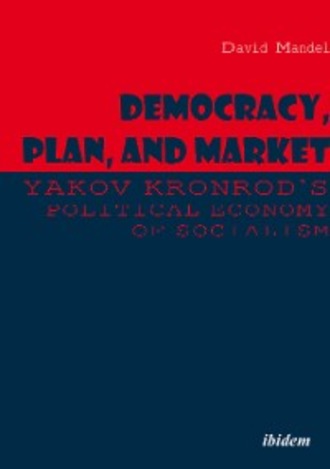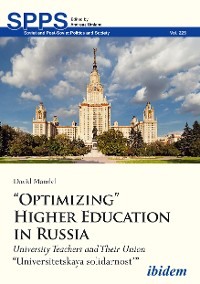
Полная версия
Democracy, Plan, and Market: Yakov Kronrod's Political Economy of Socialism
The fundamental issue for Kronrod was not “market or plan”, but power in the economy: the power of a propertied class that permits it to exploit the others, or the collective, democratic power of all of society collectively to direct economic development according to its wishes. Contemporary critics of capitalism tend to identify the problem as “domination of the market” over society (and, concomitantly, the reduced role of the state as a democratic institution) and the commoditization of public services. “Free trade” is criticized in much the same way, as if it is really about trade rather than power.
The real issue is always the same: the economic power of the bourgeoisie (the so-called 1%), power that is usurped from society. The mechanism of exploitation assumes different forms in different socio-economic formations. But its basis is always the concentration of power in the hands of the propertied minority.
Under socialism, power is wielded collectively by society as a whole. That power necessarily expresses itself as national planning. In Kronrod’s conception of socialism, commodity-money relations are subordinate to the national plan. They function within the framework established by the plan. Commodity-money relations, therefore, change their nature from what they were under capitalism. They are not a hostile, foreign element, a vestige of the old order, at source of alienation and anarchy, but an integral, necessary part of a planned, democratically-managed economy, whose basic goals are the progressive achievement of genuine social equality (including an end to the division between predominantly intellectual and physical labour) and the free development of each member of society.
Kronrod’s conception of the socialist economy offers a response to those who would be attracted by the concept of a democratic, humanistic alternative to capitalism but who are repulsed by idea, widely held and vigorously propagated by liberal economists and commentators, that a planned economy necessarily entails a vast, oppressive bureaucracy that dictates the activity of every enterprise and of every member of society. That logic of “one-big-factory” was, indeed, that of the Soviet system. Apart from its demonstrated inefficiency (which was the ultimate cause of the system’s demise), that model leaves no room for meaningful worker self-management. And without concrete, daily experience of self-management at work, genuine participatory democracy, essential to socialism, in the larger society is hardly possible.
To put it somewhat differently, from Kronrod’s point of view, Marx was probably ill-advised to develop his analysis of capitalism in the Hegelian manner, starting from the commodity and money. He would have done better to begin with the later section of Capital that presents “primitive accumulation,” the process by which the bourgeoisie, through violence, came to monopolize the means of production and create a class that was “forced to sell itself voluntarily.” In Kronrod’s view, it is the bourgeoisie’s usurpation of society’s power, not the market, that is at the heart of capitalism.
1 Cited in Ya. A. Kronod, Protsess sotsialistchekogo proizvodtsva. Moscow, Nauka, 1989, p. 4
2 L.V. Nikiforov, “Yakov Abramovich Kronrod,” in Ya. A. Kronrod v proshlom i nastoyashchem, Moscow, Institut ekonomiki, 2014, p. 19.
3 T. Kuznetsova, N. Mozhaiska, « Nauchnoe zaveshchanie Ya. A. Kronroda (k stoletiyu so dnya rozhdeniya)», Voprosy ekonomiki, 2012, no. 5, p. 116.


